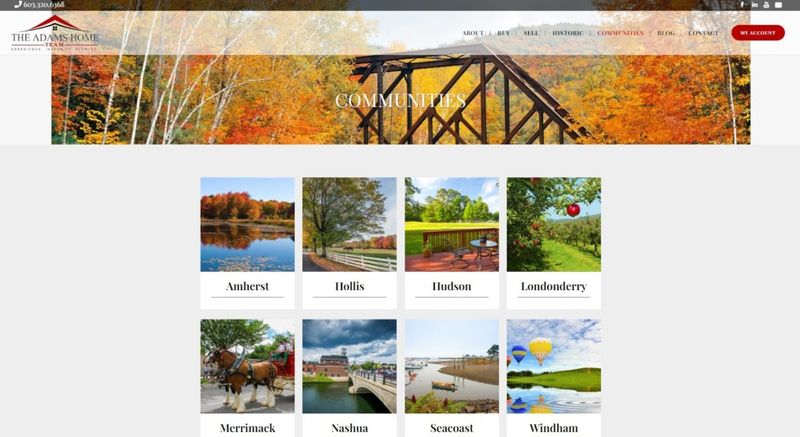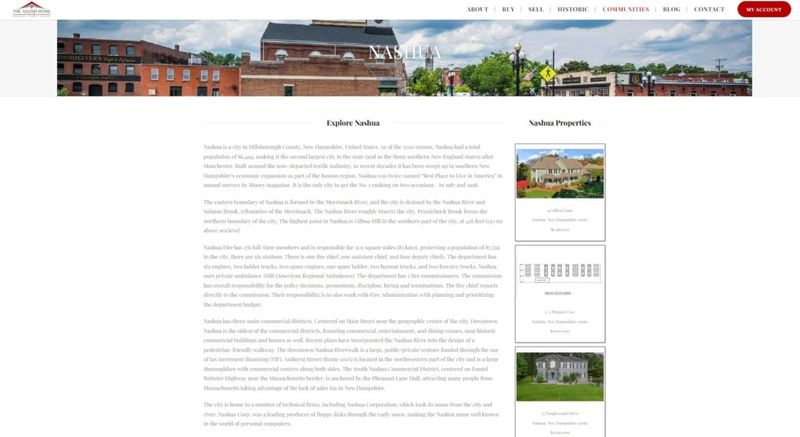Microblogging on real estate websites
If you Google “homes for sale” in any mainstream city, chances are high the Top 10 search results page will return Zillow, Realtor.com, Movoto, Redfin or a national real estate franchise. Unless you have had a dynamic website domain for 15 to 20 years, it’s highly unlikely your website will pop onto the Top 10 search page unless you have a large paid advertising budget with Google Ads.
So, how can you compete with the larger competition and get in front of new leads?
Beyond creating community pages with saved links and creating posts and videos about your listing ahead of MLS syndication, you can promote your brand and establish expertise and credibility as a real estate agent by publishing content on your website in the form of a blog—specifically a micro blog that highlights and showcases the benefits of buying a home and living in a specific neighborhood or community.
An effective and affordable long-term strategy for your real estate business, micro blog posts should dig deeper into the reasons why a certain community or neighborhood is attractive. Is crime low? Are schools receiving high report cards? Are homes close to lakes, parks, rivers, restaurants, businesses, golf courses, etc.
Better yet, pair your property listings and IDX Broker widgets together with the micro blog content.
Embedding useful content
Consider homes in Nashua, NH that share a property line with the Sky Meadow Country Club. In addition to feature photos and key details, the listing agent embedded a YouTube video originally published by the Country Club with aerial drone views of the golf course into a micro blog post highlighting the benefits of living so close to the putting greens.

Below the text and the video is a center point map and IDX widget with links to the individual properties. The combination of highlighting benefits, embedding maps and videos, and linking directly to featured properties is a great way to make your page more search engine friendly.

Another way to keep a site fresh with current and relevant content is to embed an RSS feed to another site. In this example, an IDX widget has been added to the top of a page featuring homes in the Nashua School District followed by an RSS feed that pulls in information published by Nashua.edu. As new content is published by the school district, the stories automatically update on the site.
Writing What People Want to Read
Without a specific property address, people typically search for homes for a specific area or neighborhood or community using search terms like “waterfront condos for sale in Palm Beach County.” If you are using a CMS like WordPress, you can analyze how much visitor traffic your site is experiencing through Google or Bing and add to or adjust the content to highlight certain markets or homes based on what pages people are clicking on and reading.
Writing What People Like to Read
You can also micro blog about properties of notoriety, properties that are not necessarily one of your active listings. For example, if you are in Miami or LA, a property of notoriety could be related to a celebrity of some kind or a historically significant building. Or perhaps the property is unique in its construction, architectural style, or design. Frank Sinatra’s Palm Desert home or Elvis Presley’s honeymoon home, for example.
As long as the content you write is original, you add a disclaimer to the bottom, and add a link back to the listing agent, the story may bring extra visitors (and potentially a new lead) to your site. Be sure to include the property address and a link that says, “click here for more pictures” that points to the syndicated property page directly through the MLS feed on your own website. Oftentimes your post can rank higher than the listing agent’s own link on a Google search.
Hire an IDX Broker Developer Partner
If setting up a micro blog on your real estate website sounds appealing to you, but you don’t have the bandwidth to set everything up, consider working with IDX Broker Developer Partner like CJ Hays as the Marketing Director at Agent Reputation.
For more information on optimizing your real estate website using community pages, saved searches, duplicate content, micro blogging, and other essential digital marketing practices, watch the Content is King recorded webinar through the Elm Street Technology on-demand educational academy.
